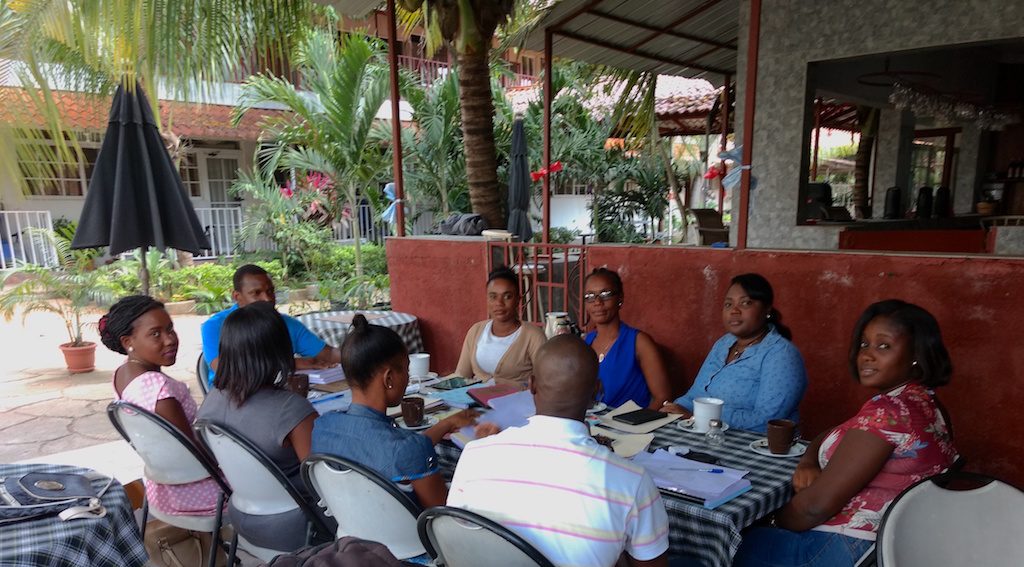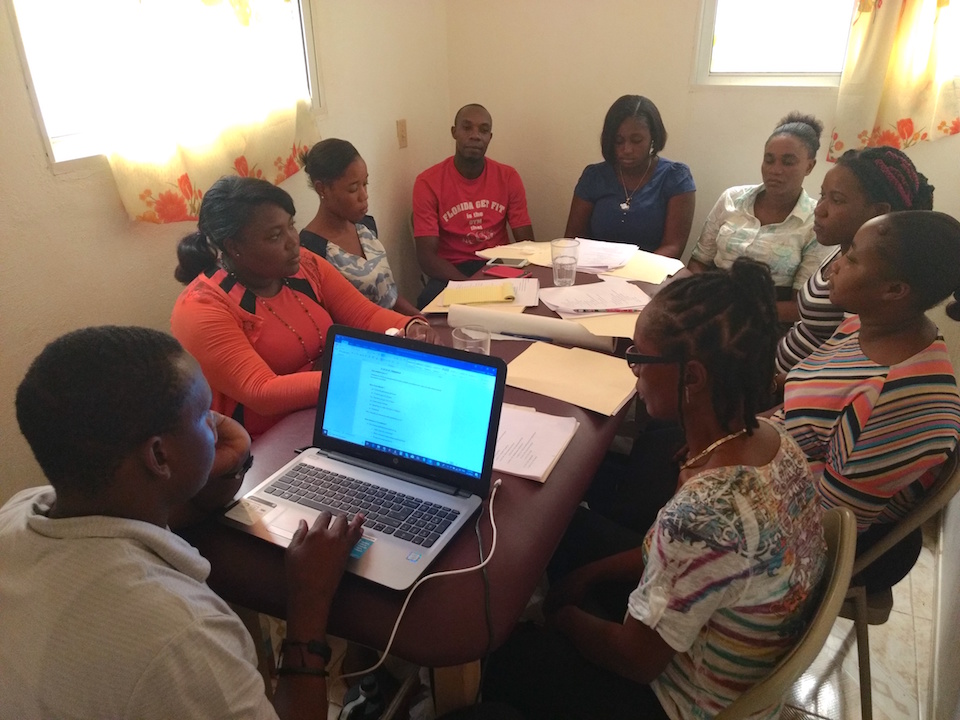Dr. Samuel Bernard leads a training session with the new cadre of C2C Community Health Workers
Dear Friends,
As you know, we opened our fourth clinic last month as part of our formal collaboration with the Haitian Ministry of Health to create a public-private partnership (PPP) to rehabilitate existing public clinics to achieve high benchmarks of service delivery and quality.
We know that rehabilitating clinic buildings and ensuring that doors are open to patients each day doesn’t necessarily improve the health of a community. Poor families need support to be able to consistently access care and to be empowered with the health education they need to make healthy choices. That’s why we pair our clinical services with community health programming: services that complement clinic-based care with community-based screenings, home visits, and education opportunities.
Earlier this year, we overhauled the scope of our existing community health programming by hiring a new cadre of 8 Community Health Workers (CHWs) devoted solely to home-based follow-up to the clinic experience. CHWs can close a critical gap in the continuum of care, helping to ensure measurable clinical improvements for patients. It’s an exciting evolution for our organization and we want to be able to offer this level of accountability to our key stakeholders: our patients.
The New Community Health Initiative:
Program Highlights:
- Each C2C clinic is now staffed with two clinical personnel devoted solely on home-based and community-based care and follow-up: one Community Health Nurse and one Community Health Agent.
- CHWs conduct home visits, provide education at churches and schools, and convene free health screenings each week to educate community members about the most common threats to health: unclean food and water, poor hygiene, chronic conditions, nutrition, the importance of childhood immunizations, and sexual health.
- This initiative targets some of the most common illnesses we treat in our clinics: acute respiratory infections, anemia, typhoid, and hypertension.
- CHWs are assigned to follow-up at the household level for every patient diagnosed with these illnesses to ensure that the continuum of care is complete and that our patients are not just receiving services, but that they are getting well.
- CHWs will bring with them the necessary medication or follow-up diagnostics or monitoring tools to the patient’s home, such as tablets, blood pressure cuffs and pneumonia monitors to assess and record the health profile of a patient at home or in the community.
CHWs are a vital link between clinic and patient. This level of service delivery is unprecedented in Haiti and we believe that we can demonstrate significant gains against baseline data, proving that the CHW model for follow-up care is measuring improved health outcomes.

